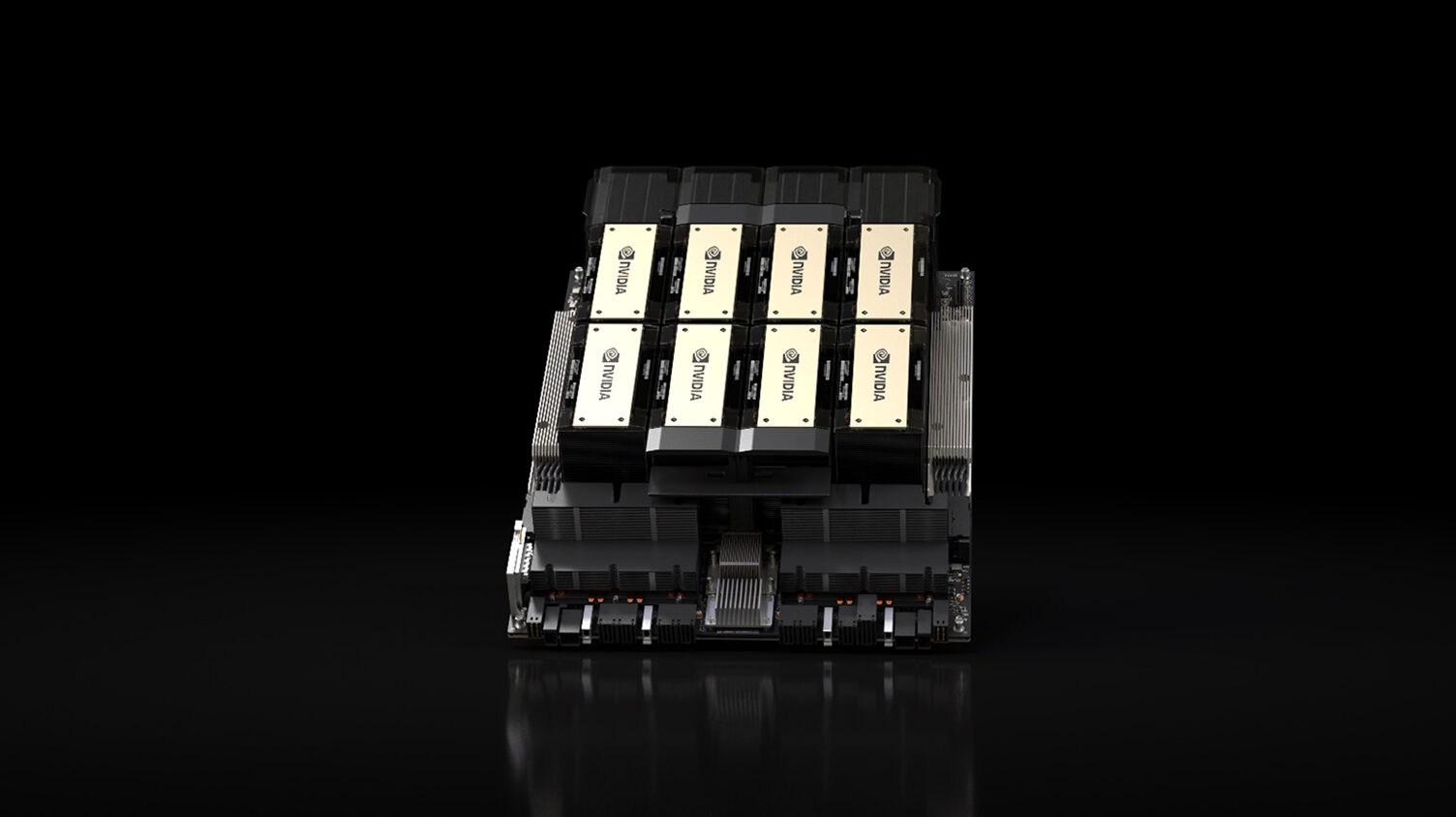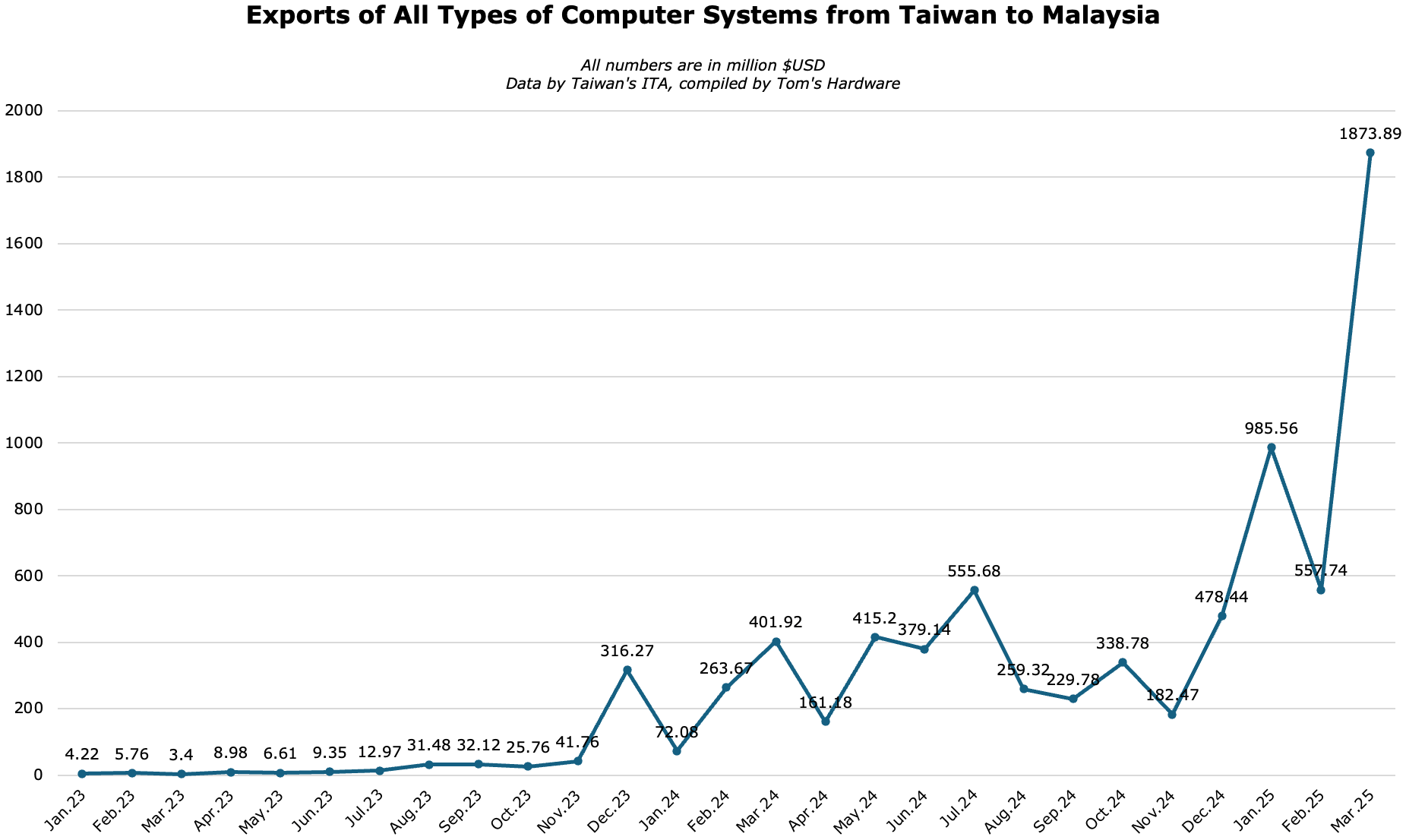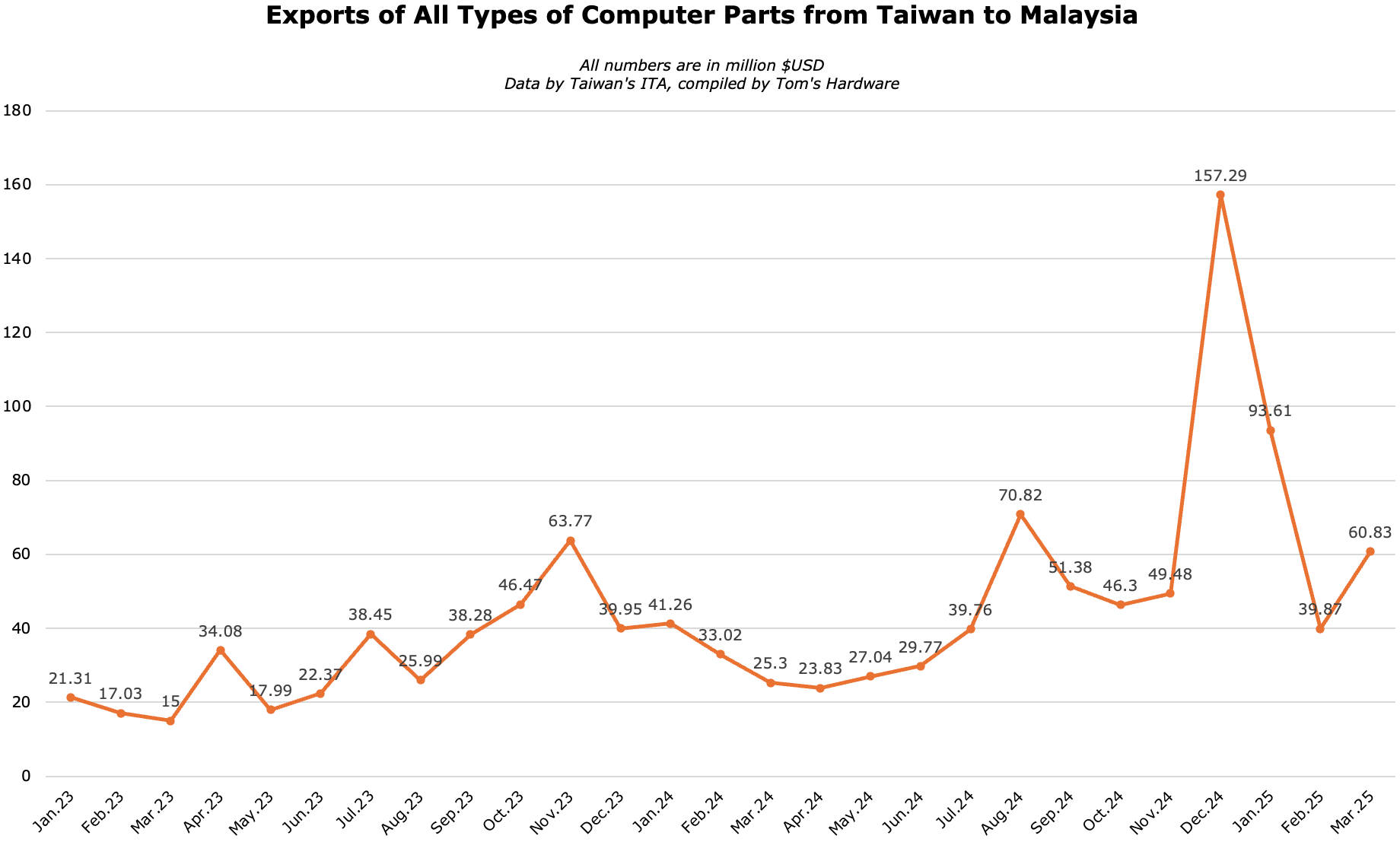Massive 366% chip shipment surge to Malaysia amid increased Nvidia AI GPU smuggling curbs, ahead of looming sectoral tariffs
Data center hub or export control avoidance?

Malaysia has become a major importer of computing systems and computer parts, such as CPUs and GPUs used for AI, from Taiwan in recent quarters, coinciding with restrictions imposed by the U.S. government on shipments of advanced GPUs for AI and HPC to Chinese entities. The surge in shipments follows increased enforcement of curbs aimed at preventing smuggled AI GPUs from entering China, as evidenced by recent busts of multiple smuggling rings and the country's commitment to further enhance enforcement. The surge is raising questions about whether Malaysia is trying to enter the cloud AI data center market, or if it is serving as a conduit for further smuggling of restricted components to China.
Exports of computer systems from Taiwan to Malaysia totaled $1873.89 million in March, up 366% year-over-year from $401.92 million last March and up a humongous 55,117% from $3.4 million in March, 2023, according to Taiwan's International Trade Administration, as noticed by Lennart Heim.
The accelerating purchases of AI hardware ahead of the AI Diffusion Rule's coming into effect on May 15 are not entirely unexpected. Big companies from Asia, including those from China, may use Malaysia as a hub to stockpile their restricted hardware.
In fact, exports of computer systems from Taiwan to Malaysia skyrocketed in December 2023, shortly after the U.S. government restricted sales of advanced CPUs and GPUs to China, according to data from Taiwan's ITA.
However, Malaysian companies are not only importing AI servers. They also accelerated purchases of components from Taiwan, which may include AI accelerators, such as Nvidia's H100. In March, exports of computer parts from Taiwan to Malaysia increased to $60.83 million, up from $27.04 million in March 2023 and $15 million in the same month last year.
There are things to note, though. Taiwan's ITA tracks exports based on their HS codes. Computer systems, which span from laptops and tablets all the way to AI, HPC, and storage servers, are classified under the heading 8471 with different suffixes. Taiwan's ITA only allows us to track items under headings and without suffixes, so exports of computer systems from Taiwan include both inexpensive notebooks and ultra-expensive Nvidia DGX and HGX AI servers (which Nvidia classifies as 8471.50). AI accelerators and graphics cards are classified as parts of computer systems under the heading 8473 codes, with Nvidia classifying them as 8473.30.
Taiwan's exports of likely AI chips to Malaysia are surging (h/t @kakashiii111). HS84718 shows patterns consistent with AI chips. With US export controls coming May 15th, this could be a rush before the deadline—or just processing in Malaysia before shipping elsewhere. 1/ pic.twitter.com/fpLRQSOTf7April 15, 2025
Although we cannot distinguish between AI servers and cheap laptops based solely on HS codes, it is evident that exports of computer systems from Taiwan to Malaysia began to accelerate right after the U.S. imposed restrictions on shipments of advanced AI GPUs to China. The U.S. government recently asked the Malaysian government to tighten oversight of the country's high-tech exports to China, which suggests that there are suspicions that Nvidia's high-end GPUs are being funneled to China.
Get Tom's Hardware's best news and in-depth reviews, straight to your inbox.
According to media reports, Chinese clients are the primary customers of Malaysian cloud data centers. Therefore, it is reasonable to expect these companies to ship AI servers from Taiwan to Malaysia, now that they cannot obtain them for China. Therefore, at least some of the high-end machines shipped to Malaysia end up in local data centers.
Follow Tom's Hardware on Google News to get our up-to-date news, analysis, and reviews in your feeds. Make sure to click the Follow button.

Anton Shilov is a contributing writer at Tom’s Hardware. Over the past couple of decades, he has covered everything from CPUs and GPUs to supercomputers and from modern process technologies and latest fab tools to high-tech industry trends.
-
alrighty_then China will still buy NVIDIA hardware, just not directly as a result of tariffs. This should not surprise anyone.Reply

